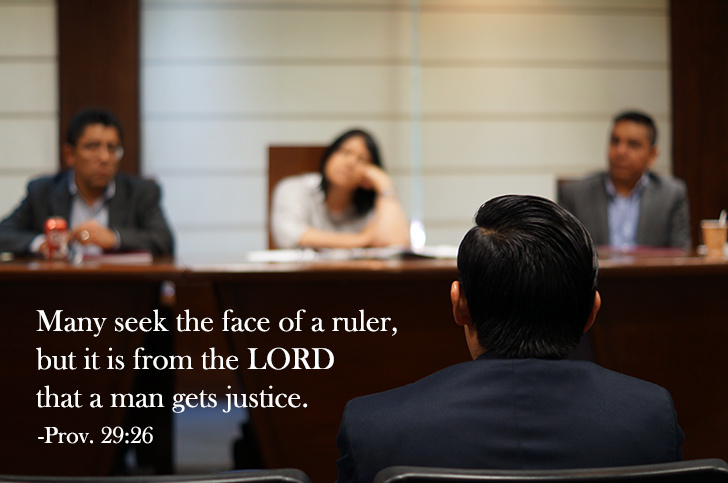
Proverbs 26:24-26 -- Whoever hates disguises himself with his lips and harbors deceit in his heart; when he speaks graciously, believe him not, for there are seven abominations in his heart; though his hatred be covered with deception, his wickedness will be exposed in the assembly.
“Fool me once, shame on you. Fool me twice, shame on me.” If you know someone holds deceit in his heart, then do not believe her, no matter how persuasively she talks. Lucy tells Charlie Brown that this time, really, no lying, she will hold the football for him to kick. The joke is always on “good ‘ol Charlie Brown.” Lucy always gleefully pulls the football away once again, and he falls on his back. Gullible Charlie Brown remains a culpable fool, fooled again by Lucy’s gracious speech.
The Book of Proverbs has no use for the gullible, viewing them as willful fools. Even when everyone else can see a hateful, deceitful person for what he is (his wickedness will be exposed in the assembly) the world’s Charlie Browns choose to believe gracious words. Sometimes even praising themselves for being so trusting, the gullible swallow lies: “I’ll pay you back this time, honest;” “I need ten dollars to buy some food; no drugs this time, honest;” “My country will destroy all its poison gas; we’ll never use it again.” Woe to the country that sends a gullible naïve diplomat to negotiate with its enemy.
Satan spoke friendly words to Eve, whom he hated. “Has God really said you shall not eat from any tree of the Garden?” Then came a promise of being like God knowing good and evil, and finally a flat denial that God would punish her with death. When God confronted Eve with her disobedience, she used gullibility as a defense. “The serpent deceived me, and I ate (Genesis 3:13, see I Timothy 2:14).” Her defense left God unmoved.
Should we take people at face value, as they present themselves? Yes, charity and love impel us to believe and trust our neighbors. Indeed, society could not function with all mistrusting all, all of the time. However, part of wisdom is to “see through” people who are full of hatred for their neighbors: “Do not believe him,” is the command of father to son in this proverb. To deny that such people exist, or that an enemy is an enemy, is detestable “make believe.”
Even in the Church of Jesus Christ, tares grow among the wheat (Matthew 13:24-30). Paul warns Timothy against Alexander the coppersmith (II Timothy 4:14). Friends owe friends warnings about deceitful people, and the wise will listen because some people, full of hatred, cover their deceit with gracious words. John G. Bennett, Jr., the con man who ran the Philadelphia based Ponzi scheme, New Era Philanthropy Foundation, ensnared many Christian institutions between 1989 and 1995. “He prayed so well,” deceived Christians said. The proverb warns Charlie Brown, “Don’t believe Lucy!”
Explore Christ-centered education in a vocational context at Geneva College - admissions@geneva.edu | 800-847-8255.
Dr. Bill Edgar, former chair of the Geneva College Board of Trustees, former Geneva College President and longtime pastor in the Reformed Presbyterian Church of North America (RPCNA)
------
Opinions expressed in the Geneva Blog are those of its contributors and do not necessarily represent the opinions or official position of the College. The Geneva Blog is a place for faculty and contributing writers to express points of view, academic insights, and contribute to national conversations to spark thought, conversation, and the pursuit of truth, in line with our philosophy as a Christian, liberal arts institution.
Apr 6, 2021Biblical WisdomRelated Blog Posts
Request Information
Learn more about Geneva College.
Have questions? Call us at 724-847-6505.










 Online Course Login
Online Course Login